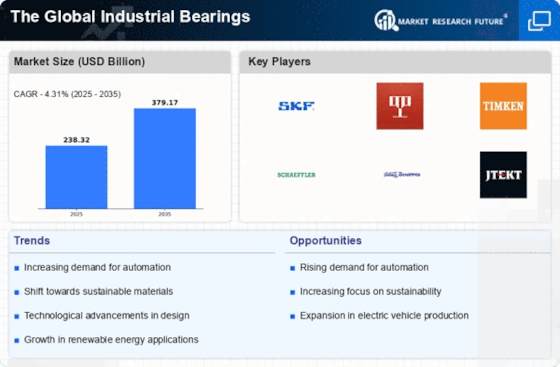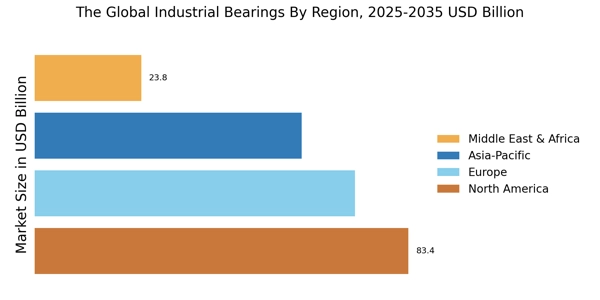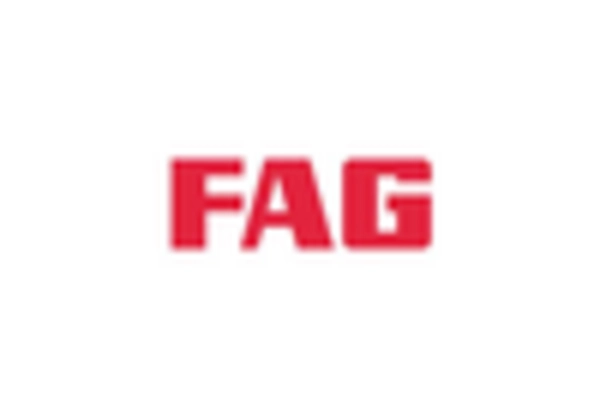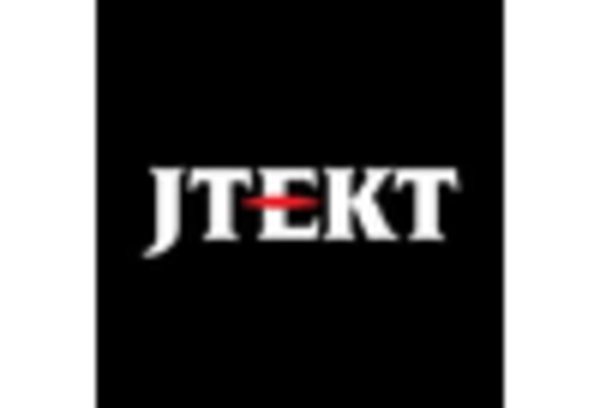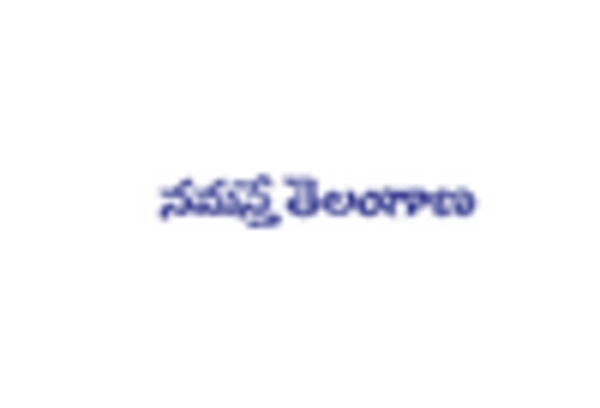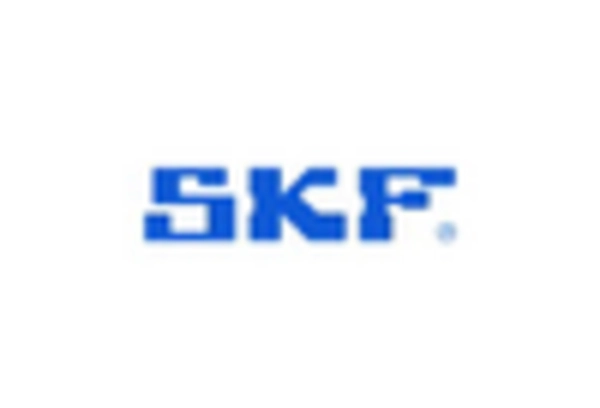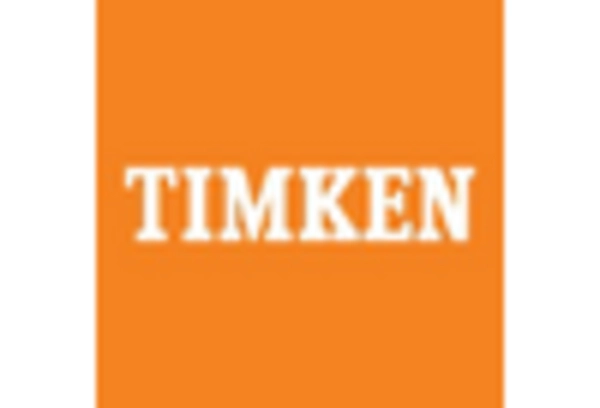Growth in Automotive Industry
The automotive industry is undergoing a transformation, with electric vehicles (EVs) gaining traction. This shift is likely to have a profound impact on The Global Industrial Bearings Industry. As manufacturers pivot towards EV production, the demand for lightweight and high-efficiency bearings is expected to rise. The automotive sector is projected to grow by approximately 5% annually, with EVs accounting for a significant portion of this growth. Bearings play a crucial role in enhancing vehicle performance and energy efficiency, making them indispensable in modern automotive design. Thus, The Global Industrial Bearings Industry is positioned to capitalize on this trend, as automotive manufacturers increasingly seek innovative bearing solutions.
Rising Demand in Manufacturing Sector
The manufacturing sector is experiencing a notable resurgence, which appears to be driving the demand for The Global Industrial Bearings Industry. As industries ramp up production capabilities, the need for reliable and efficient bearings becomes paramount. In 2025, the manufacturing sector is projected to grow at a compound annual growth rate of approximately 4.5%, which could translate into increased sales for bearing manufacturers. This growth is likely fueled by advancements in automation and robotics, which require high-performance bearings to ensure operational efficiency. Consequently, The Global Industrial Bearings Industry is poised to benefit from this upward trend, as manufacturers seek to enhance productivity and reduce downtime through the adoption of superior bearing solutions.
Expansion of Renewable Energy Projects
The expansion of renewable energy projects is significantly influencing The Global Industrial Bearings Industry. As countries invest in wind, solar, and hydroelectric power, the demand for specialized bearings designed for harsh environmental conditions is likely to increase. Wind turbines, for instance, require robust bearings that can withstand extreme weather and operational stresses. The renewable energy sector is expected to grow at a rate of around 8% annually, which may lead to a substantial uptick in bearing applications within this field. This trend suggests that The Global Industrial Bearings Industry will see a diversification of product offerings to cater to the unique requirements of renewable energy systems.
Infrastructure Development Initiatives
Infrastructure development initiatives are gaining momentum across various regions, which appears to be a key driver for The Global Industrial Bearings Industry. Governments are investing heavily in transportation, construction, and public works projects, leading to an increased demand for heavy machinery and equipment. This surge in infrastructure projects is likely to create a corresponding need for durable and high-performance bearings. The construction sector is anticipated to grow at a rate of around 6% annually, which may result in a significant uptick in bearing applications. Consequently, The Global Industrial Bearings Industry stands to benefit from this trend, as construction and infrastructure projects require reliable bearing solutions to ensure operational efficiency.
Technological Innovations in Bearing Design
Technological innovations in bearing design are reshaping the landscape of The Global Industrial Bearings Industry. Advances in materials science and engineering are leading to the development of bearings that offer enhanced performance, durability, and efficiency. For instance, the introduction of ceramic and hybrid bearings is likely to provide superior resistance to wear and corrosion, which could be particularly beneficial in demanding applications. The market for advanced bearing technologies is expected to grow at a rate of approximately 7% annually, driven by the need for improved performance in various industrial applications. This trend suggests that The Global Industrial Bearings Industry will continue to evolve, with manufacturers focusing on research and development to meet the changing needs of their customers.


